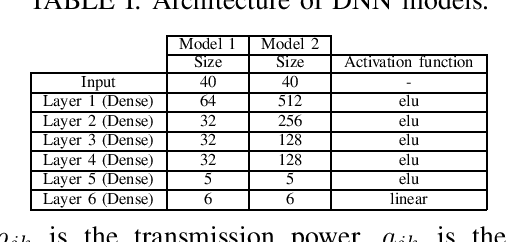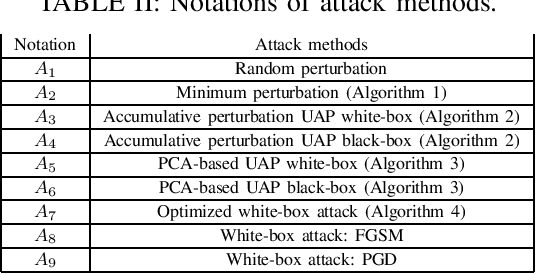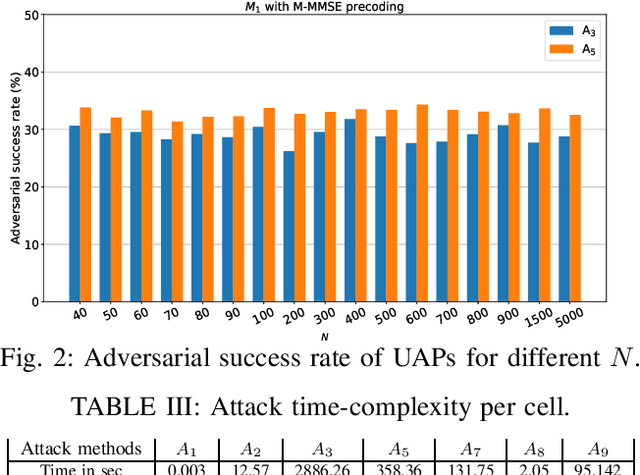Universal Adversarial Attacks on Neural Networks for Power Allocation in a Massive MIMO System
Paper and Code
Oct 10, 2021



Deep learning (DL) architectures have been successfully used in many applications including wireless systems. However, they have been shown to be susceptible to adversarial attacks. We analyze DL-based models for a regression problem in the context of downlink power allocation in massive multiple-input-multiple-output systems and propose universal adversarial perturbation (UAP)-crafting methods as white-box and black-box attacks. We benchmark the UAP performance of white-box and black-box attacks for the considered application and show that the adversarial success rate can achieve up to 60% and 40%, respectively. The proposed UAP-based attacks make a more practical and realistic approach as compared to classical white-box attacks.
* accepted for publication in IEEE Wireless Communications Letters
 Add to Chrome
Add to Chrome Add to Firefox
Add to Firefox Add to Edge
Add to Edge